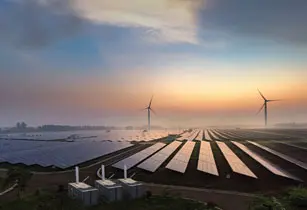As Africa’s burgeoning economies grow, so does the demand for oil and gas
Simultaneously, we're faced with an increasing responsibility to transition to more sustainable energy practices.
The transition from fossil fuels to cleaner energy alternatives can mitigate both financial and environmental costs, turning an otherwise challenging task into a valuable opportunity.
To effectively address the challenges of the transition, it is crucial to follow a phased approach.
The first step involves minimising diesel usage. For decades, diesel has been indispensable in powering the different phases of a project's life cycle, but its reduction is now a priority. By minimising diesel use, operators can take a crucial first step towards saving on costs and lowering emissions.
The second step involves gradually shifting to gas power and alternative fuels. Africa's abundant sunshine provides fantastic potential for utilising solar energy, making it an ideal candidate for energy operations. Through harnessing this and other renewable sources, further savings can be made and a clear path can be paved towards net zero.
Additionally, the use of innovative energy technologies such as hybrid battery systems and virtual pipelines can revolutionise Africa's energy landscape. These technologies offer both efficiency and environmental benefits, making them an integral part of any energy transition strategy.
To help make this transition smoother for oil and gas operators, we've created a comprehensive E-Guide. This guide breaks down each phase of the energy transition, providing practical solutions and clear, step-by-step guidance for oil and gas operators in Africa.
To learn more about how you can help power Africa’s energy transition, please download our E-Guide here.
Together, let's power a sustainable future for Africa.








